Lido Nation presents
A day at the lake
NFT holders get access to Ad spots on the
Lido Minute podcast.

Find your people
Listeners of the Lido Minute are looking for the next big thing in blockchain
What do you want to tell them?

-
Something Different
- Unlike traditional advertising: if the resale market for LIDO NFTs is strong, you could recoup all or some of your purchase price if you choose to sell.
-
One Cost - No Limits
- With a LIDO NFT, you only pay once, and you can run your ad forever!
-
Support Lido Nation
- Resale of the NFTs incur a 25% royalty fee, so the next buyer is also supporting blockchain education.




Advertise your
- Company
- staking pool
- NFT Project
- Project Catalyst Proposal
- YouTube Channel
Or just share a poem with the world

Download Tealpaper for full details & FAQs
The Artist

The urges to learn and to create are the twain drives evident in most of artist Stephanie King’s undertakings. Whether building a chicken coop for her backyard pets, designing a web app for her nonprofit clients, growing a giant pumpkin, practicing a new language, or performing with her dance team, Stephanie finds there is always something to learn: from nature, from history, from each other.
From the joy of learning springs the need to participate: to apply new knowledge, combine exciting ideas, and create something new.
The Collection
A Day at the Lake
Season one of the Lido Minute podcast with Darlington Kofa puts Cardano Network Parameters under the microscope. These parameters are the little, often-overlooked details that make the technology tick.
For the NFT art, Stephanie plunged into a different ecosystem - a pond - and looked at the little things there. Like network parameters, aquatic microorganisms are more fascinating and important than you might have thought.
Each NFT started with research on a different bit of pond scum. Some of these creatures are common and well-documented, while others are more unusual and required some digging to learn about them. Stephanie crafted a short paragraph for each microorganism to describe something interesting or funny about the little beings. These descriptions are included in the NFT metadata.
After research and writing, Stephanie used microscope imagery, hand-drawn elements using a digital tablet, and an AI art engine to generate artistic impressions of each small critter. These images were then placed in various motifs to create each set. The combination of method and medium, from old-fashioned research to digital pen and paper to AI generative elements, plays with our notions about the art’s past, present, and future of art.
Like everything else at LidoNation.com, A Day at the Lake invites you to learn and then to participate!
The Motifs
Portrait
The motif used for the Common NFTs is actually one of our favorites, because it includes the educational blurb right on the image - typed out by an imagined lab assistant and taped on the page.
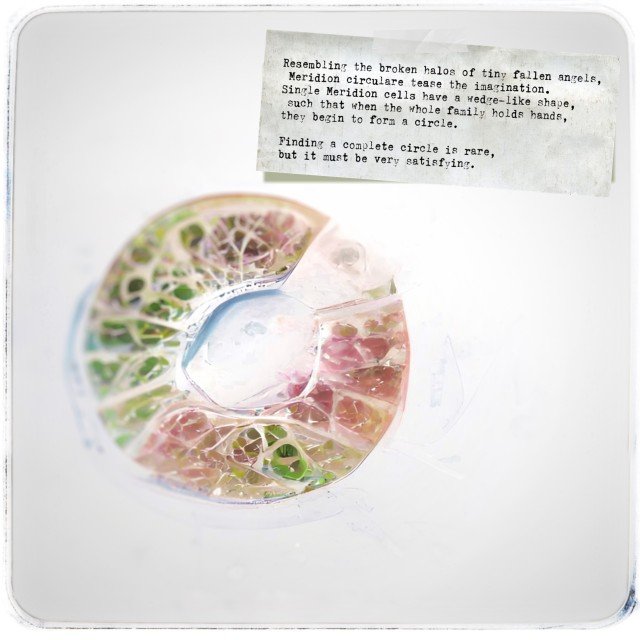
Meridion Circulare
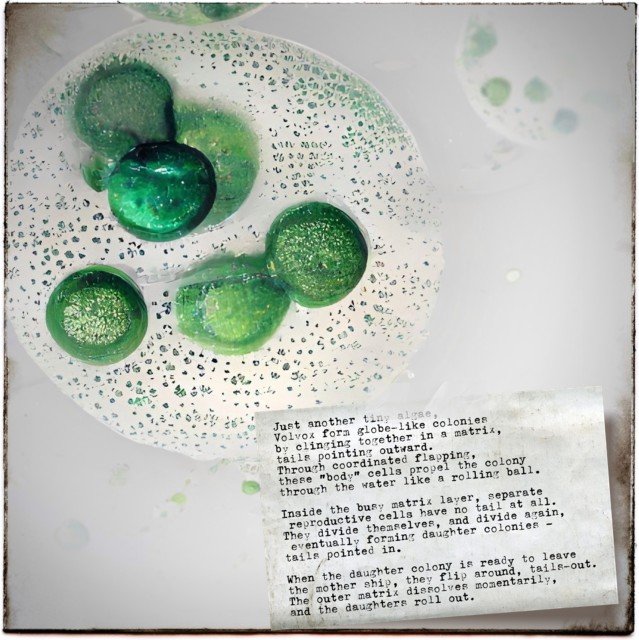
Volvox
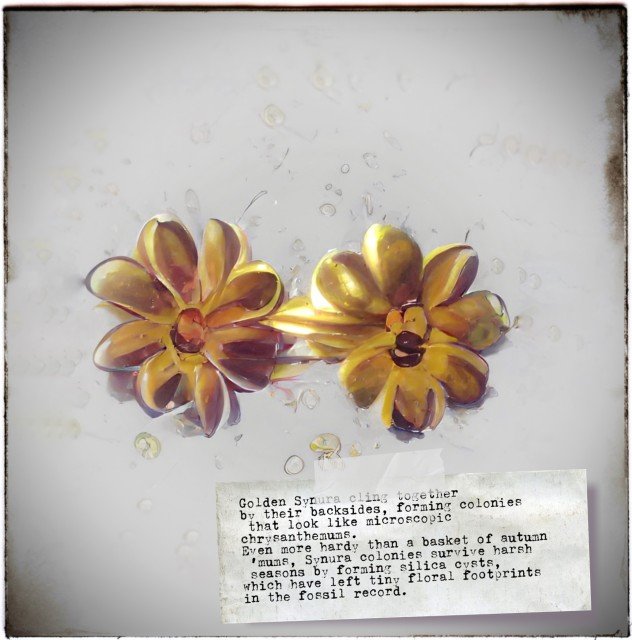
Synura
In the Lab
This motif represents the researcher’s view as they peer into a microscope. After carefully preparing a slide with a drop of pond water and a fragile glass cover slip, they carefully adjust the focus knob. One never knows what may float into view!
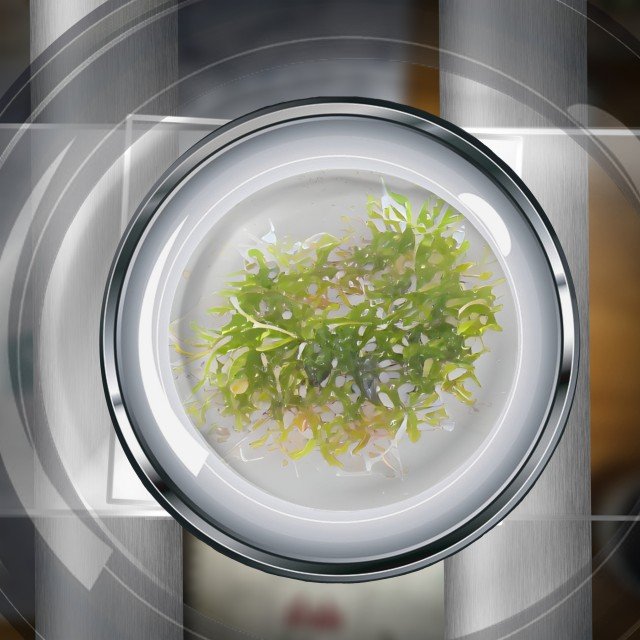
Thalloid Liverwort
Difflugia Corona
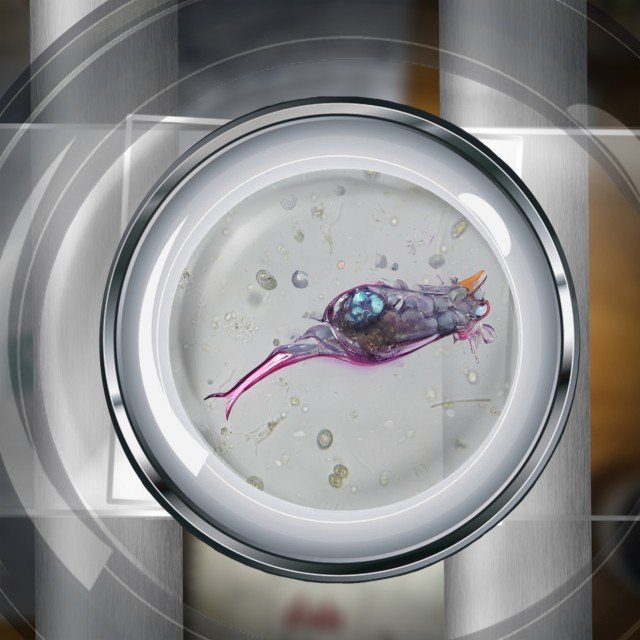
bdelloid rotifer
Bubbles
This fanciful motif features a pretty bit of pond scum… floating away in a soap bubble. This exact scenario might be imaginative, but in fact many species of pond life spread around world by riding the wind!
Testudinella
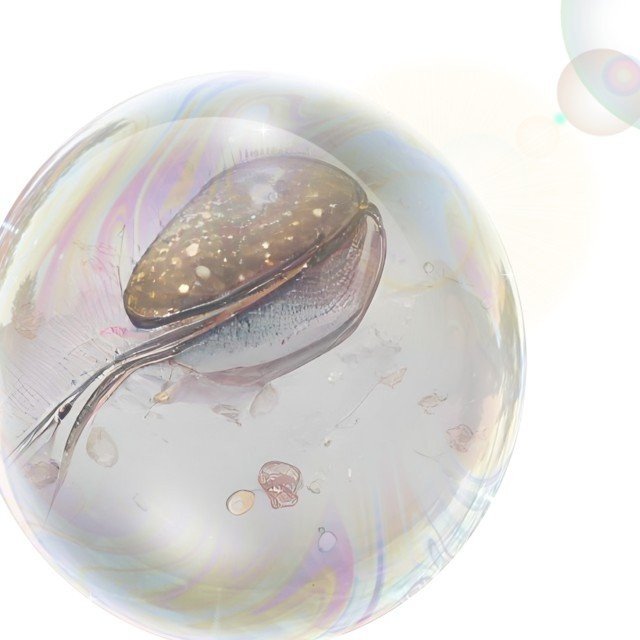
Ostracod
Peridinium
Puddles
Although we have to bring them back to the lab in order to see them, aquatic microorganisms are not primarily found in such clinical surroundings. Rather, they are right here with us out in the world - such as in this pretty puddle at the end of a rainy week.
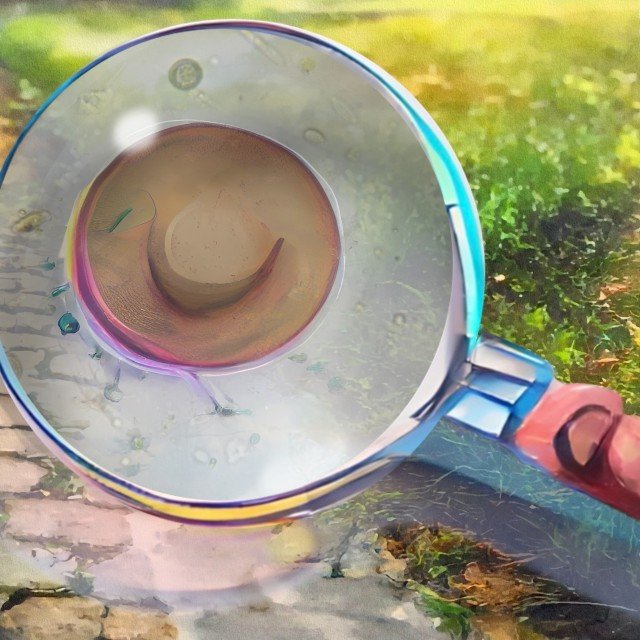
Arcella Discoides
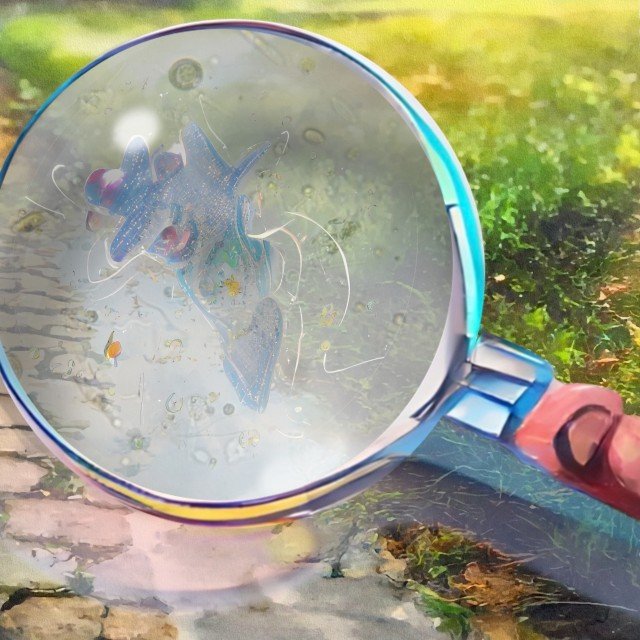
Amoeba
Elysia Chlorotica
Steampunk Museum
This motif is a bit of pure imagination. In a Victorian techno-future, microorganisms are encased in brass bubbles and displayed on museum walls, while visitors with bustles and top hats peer through Google-vision monocles.
Gomphonema
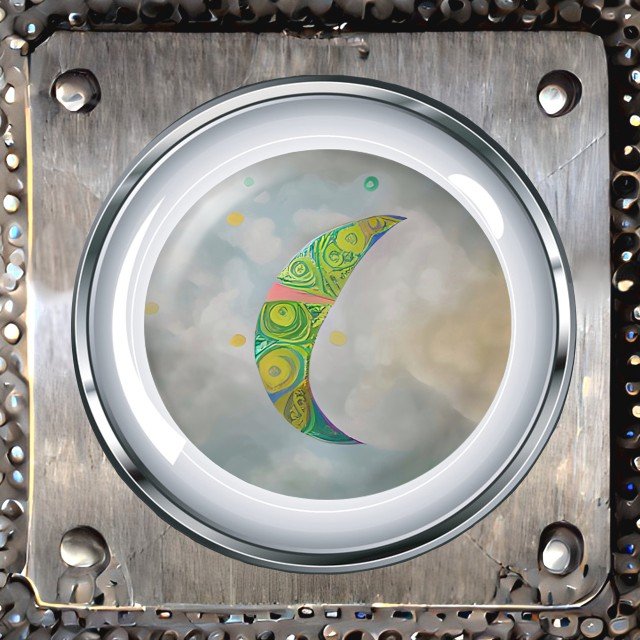
Closterium
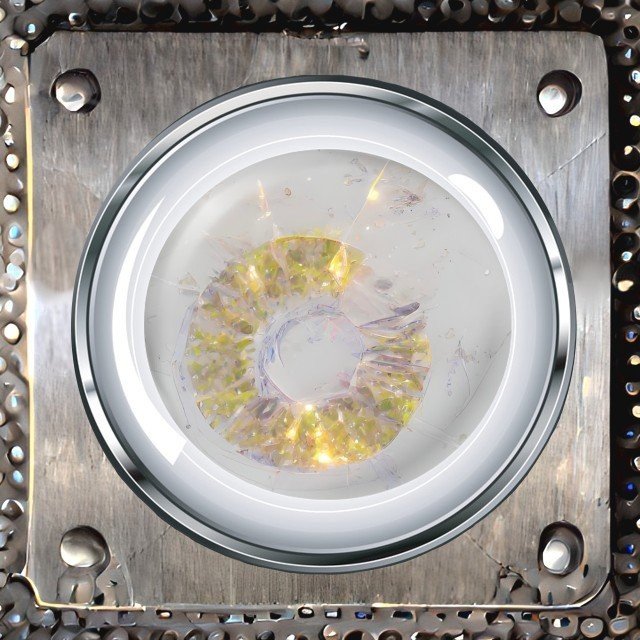
Meridion Circulare
Tide Pool
In this motif we imagine ourselves at the edge of one of the world’s largest “pools.” Sea spray dots the lens surface as we peer beneath the surface of the water.
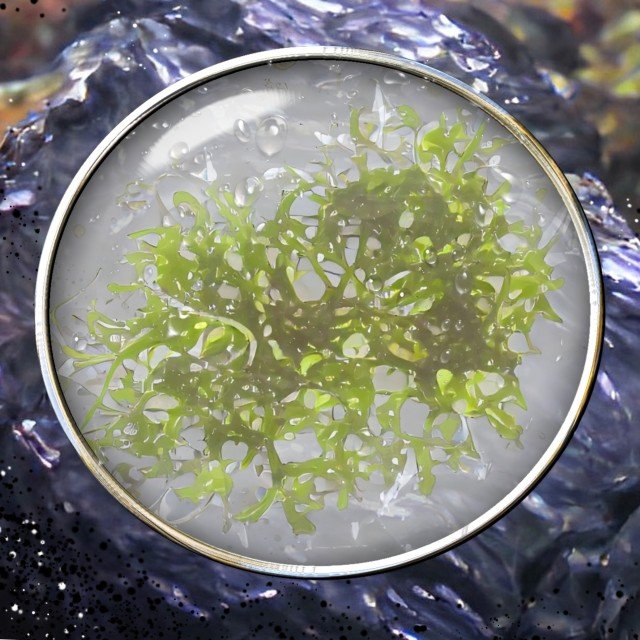
Thalloid Liverwort
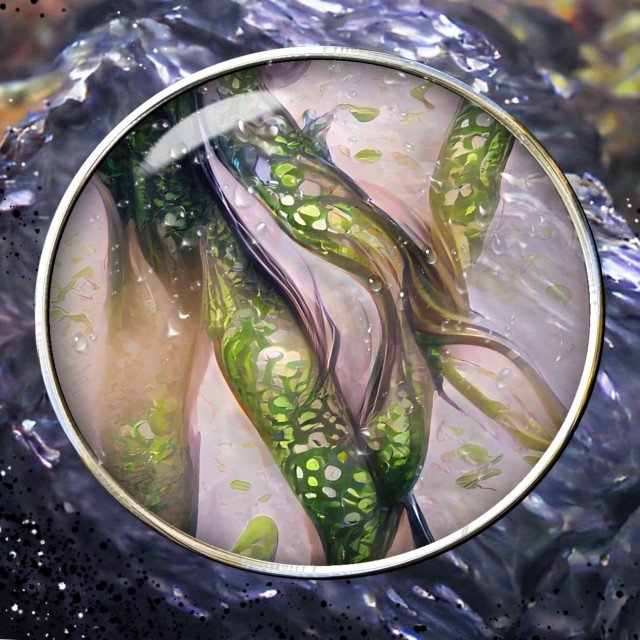
Vaucheria
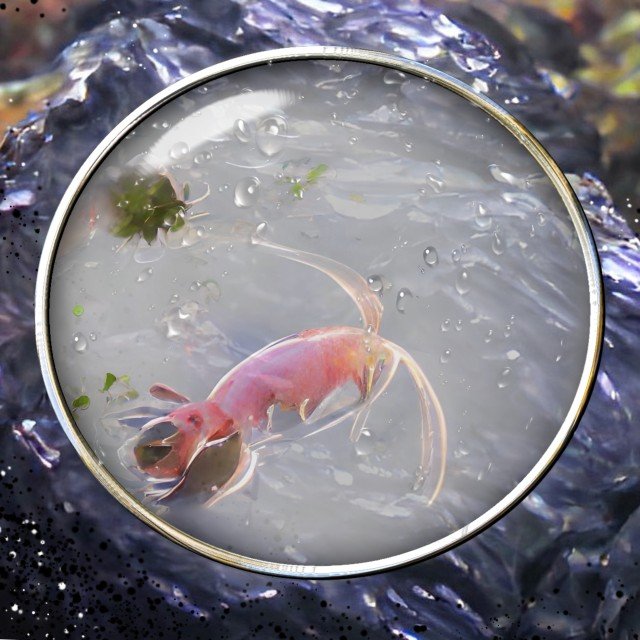
Copepod
Behind the curtain
As an artist, I am always interested in “process”— how was the art made, what were the tools, what were the influences? This motif is an imaginary peek at my work table. The tools are different from day to day, but the coffee cup is never far away.
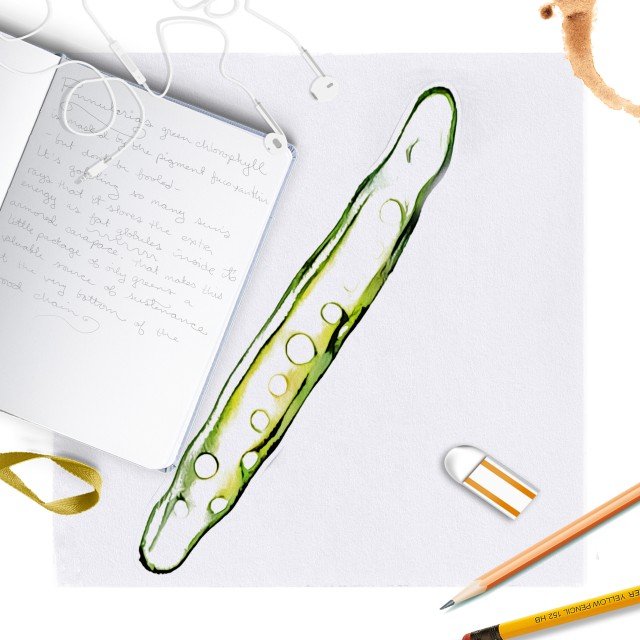
Pinnularia
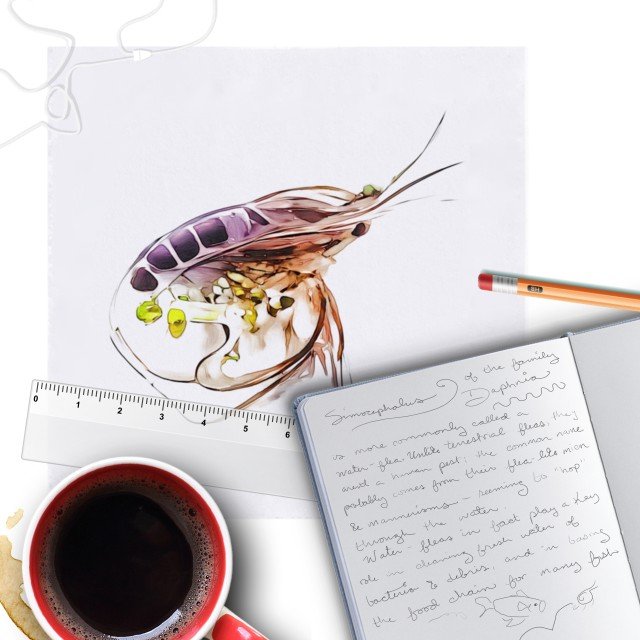
Simocephalus
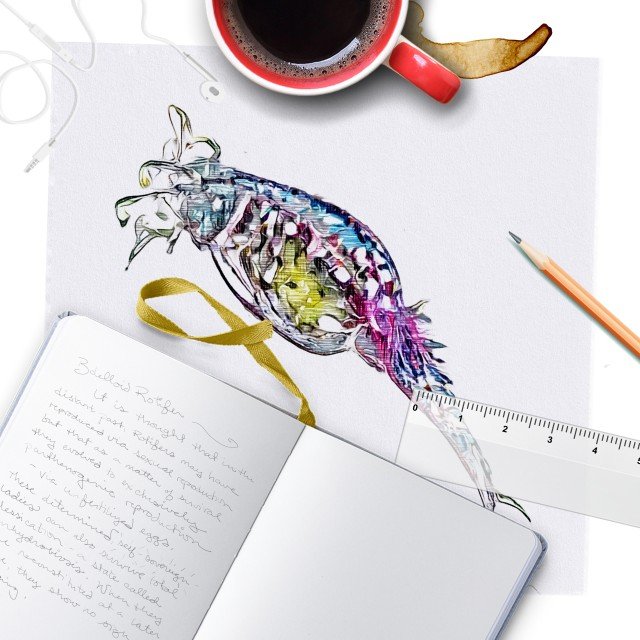
bdelloid rotifer
How it works
-
1 Buy a "Day at the Lake" NFT
-
There are 5 NFTs available for each episode of the Lido Minute.
Each set features a different pond microorganism in different motifs.
There are three Commons, one Rare, and one Super-Rare in each set.
Which one you get is luck of the draw!
New NFTs drop every Friday at 11AM UTC, one week ahead of the corresponding podcast release. -
2 Submit your ad content
-
Your ad can be text-only, or can include a URL, or your can link to an ad image that you
would like displayed. [LIDO Partner Portal with specific instructions coming soon].
Your ad will be one of 5 that might be displayed alongside the podcast episode that you sponsored. Rare and Super-Rare NFT holders' content will be displayed more often than Commons! You can increase the odds of your content getting served to site visitors by buying multiple spots!
There's no rules about what you can advertise, except it cannot be hateful or inappropriate for a general audience. Promote your project, your company, or just share a fun announcement with the world! -
3 Keep it - or Sell it!
-
You can keep your NFT - and your ad rights -for as long as you want. You can swap out
your
ad content with updates or totally different ads as often as you like. “Pay once
advertise
forever!”
You can also sell your NFT to someone else. As the new holder, they will take over rights to your ad spot and their content will replace yours.


